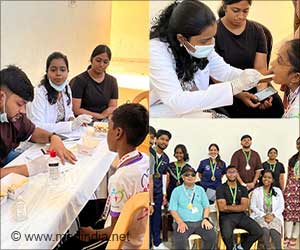
These grim statistics drive scientists like Anthony W. De Tomaso, assistant professor of biology at UCSB, to delve into the cellular biology of immune responses. His studies of the sea squirt shed light on the complicated issue of organ rejection. The latest results are published online today in the journal Immunity.
De Tomaso hopes to understand how it might be possible to "tune" the body's immune response in order to dial down the rejection of a donated organ. Studying cellular responses in simple organisms may also eventually help with autoimmune diseases –– those in which the body mistakenly attacks itself.
Source-Eurekalert









